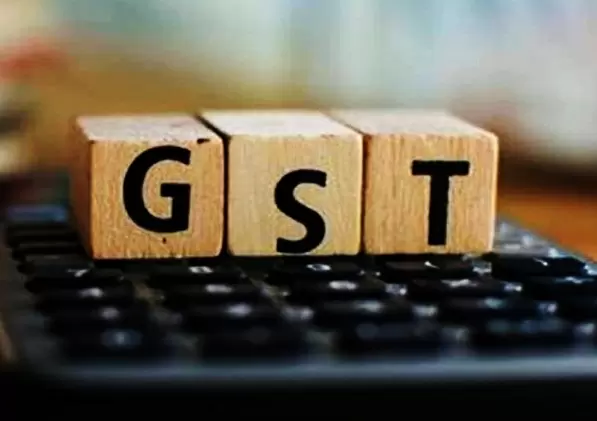GST Council's recommended measures to curb fake dealers/invoice rackets notified
New Delhi
23-December-2020

Now GST registrations will have in-person verification before registration is granted to any applicant.
The Law Committee recommendations as notified are central to four key themes, namely - tightening of verification process for new registrations, suspension based on data analytics and mismatches, minimum cash payment to deter dummy businesses and ease of doing business and precise targeting in the interest of small business intelligently protected.
The notified measures, as approved by the GST Implementation Committee (GIC) and deliberated among the 10 states' members and the Centre's representatives in the GSTC's Law Committee during several rounds of discussion, would, on one hand, help to tackle the menace of fake invoices for availing and passing on of input tax credit (ITC) by fraudsters and on the other hand, simultaneously would ensure that there is no impact on the Ease of Doing Business which is achieved in GST through liberal registration, refund regime and self-compliance system with little or no manual checks.
The major recommendation of the Law Committee of GST Council is for controlling the fresh or new registration taken by the applicants without business purpose and for weeding out the existing fake dealers from the systems.
Measures, hence, notified towards systemic tightening of new registration by identifying fake dealers, modifications in the registration process, use of Aadhaar during registration and Aadhaar-like capturing of details during registration would impact the menace of mushrooming fake firms and ITC fraud by fly-by-night operators.
With regard to verification of new registration, now there must be in-person verification before registration is granted to an applicant. Further, in case an applicant opts for Aadhaar authentication, he will undergo biometric-based Aadhaar authentication at one of the Facilitation Centres notified by the Commissioner.
Watch This TWL Video
In case, the applicant has not opted for Aadhaar authentication, then for processing the application, biometric information and verification of KYC documents must be undertaken at the Verification Centres.
This amendment will come into effect from a date to be notified later after setting up of facilitation centres on the lines of Passport Seva Kendras or Aadhaar Seva Kendras.
In the new regime, the suspension and cancellations would be based on data analytics and mismatches. A registration now is also liable for cancellation where the input tax credit is availed in violation of provisions of the CGST Act or the details of outward supplies in the GSTR-1 form are in excess to the outward supplies declared in GSTR-3B form, for one or more tax periods.
In changes in the rules to deter dummy businesses, the present eligibility limit of availing 10 per cent input tax credit (ITC) by a registered person in respect of invoices where the details have not been furnished by his suppliers would be reduced to 5 per cent w.e.f. January 1, 2021.
To curb fake ITC availment and passing on of such credit by unscrupulous persons who generally pay no tax in cash, particularly in those risky cases where GST turnover does not match with the income tax returns and where the value of taxable supply other than exempt supply and zero-rated supply in a month exceeds Rs 50 lakh, such registered person will not be able to use the amount of ITC available in electronic credit ledger to discharge his liability towards output tax in excess of 99 per cent of such tax liability. At least 1 per cent liability would need to be discharged in cash. This change will come into effect from January 1, 2021.
However, there are some exemptions to the above provision of limiting ITC utilisation to ensure Ease of Doing Business.
Accordingly, where a taxpayer has paid more than Rs 1 lakh as income tax in each of the last two financial years or has received a refund of unutilised ITC on account of zero rated supply or inverted duty structure of more than Rs 1 lakh in the preceding financial year or has discharged his liability towards output tax through the electronic cash ledger for an amount in excess of 1 per cent of the total output tax liability, cumulatively till that tax period, they can use more than 99 per cent ITC to discharge tax liability.
Further, government departments, public sector undertakings, local authorities and/or statutory bodies, are exempted from this limit on ITC utilisation.
Collectively, the steps are likely to control dummy registrations and fake billing for ITC to take GST process towards a cleaner and robust regime. - IANS
More Headlines
Bajrang Dal Appeals to Ban Oyo Check-Ins for Unmarried Couples in Bengaluru
Heavy Rains Predicted In Five TN Districts On January 11
Cold Wave Grips Rajasthan: Fatehpur Hits 1.1°C, Nagaur 1.7°C
Actor Ajith Kumar Escapes Unharmed After Crash During 24H Dubai Practice
32 Dead As 7.1 Magnitude Earthquake Strikes Nepal-Tibet Border
Bajrang Dal Appeals to Ban Oyo Check-Ins for Unmarried Couples in Bengaluru
Heavy Rains Predicted In Five TN Districts On January 11
Cold Wave Grips Rajasthan: Fatehpur Hits 1.1°C, Nagaur 1.7°C
Actor Ajith Kumar Escapes Unharmed After Crash During 24H Dubai Practice
32 Dead As 7.1 Magnitude Earthquake Strikes Nepal-Tibet Border










